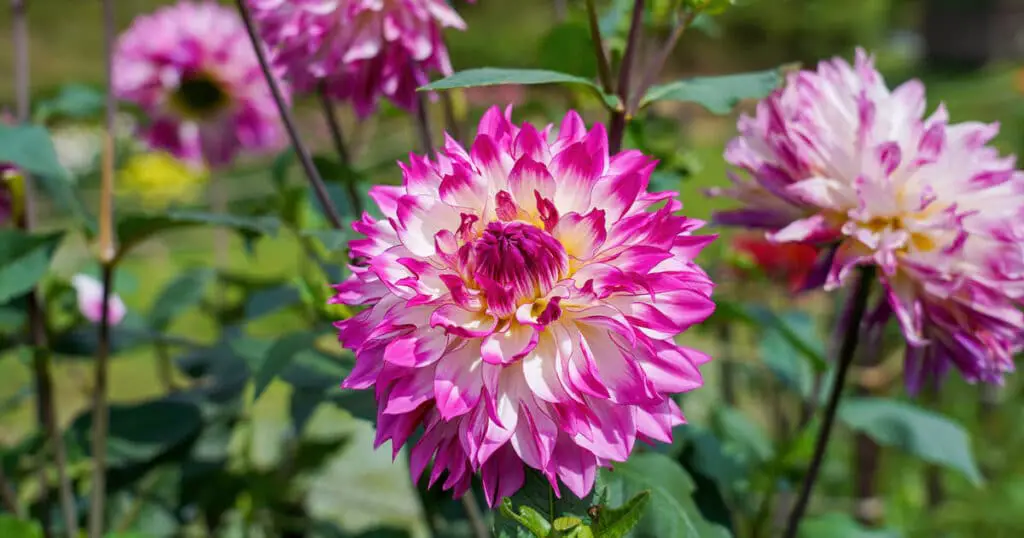Dahlias are beautiful flowers and they’re easy to grow, making them one of the most popular plants for home gardeners. If you live in an area with deer, you’re probably eager to protect your dahlias from pesky cervids looking for a snack. But do deer eat dahlias? We’ll find out below.
Avid gardeners know how much deer gravitate towards flowerbeds. If you plant flowers that deer enjoy eating, you’ve got to take precautions to keep deer out of your garden.
So, Do Deer Eat Dahlias? (Answered)
Yes, deer do eat dahlias. While they aren’t one of their favorite foods, deer will certainly eat dahlias when they don’t have other food sources available.
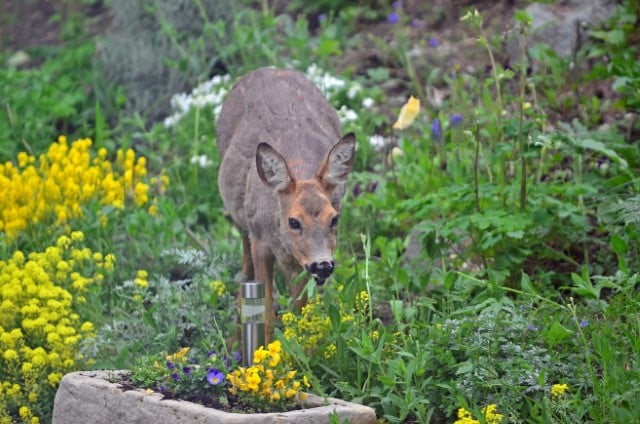
Do you have deer in the area? There is always some risk that deer will start eating your dahlias. The risk level depends on the season and where you live.
Let’s learn about things you can do to stop deer from eating your dahlias. We’ll start by talking about some of the basic eating habits of deer.
What Do Deer Eat?
Deer are herbivores, meaning they only eat plants. They are mostly foraging animals and will eat just about whatever food they can find.
Deer have a very good instinct and will eat foods that offer the most nutrients while requiring the least amount of effort.
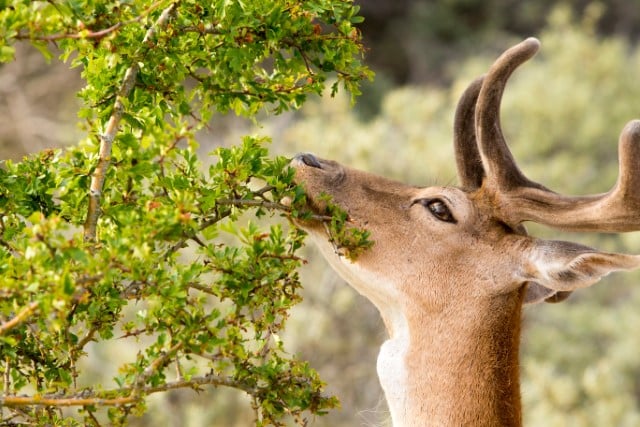
Deer’s favorite foods include leaves, shrubs, fruits, nuts, and berries.
Deer will also eat grass and flowers. On rare occasions, these animals have even been known to eat birds’ eggs (and even dead birds).
Deer aren’t the most discerning diners. They’ll eat just about whatever fruits and plants they can find.
If a deer is having trouble finding enough food and it can access the dahlias in your garden, these flowers will probably be on the menu. They’ll probably go after your fruits and other plants first.
Are Dahlias Resistant to Deer?
No, dahlias aren’t deer-resistant annuals. In fact, dahlias provide a lot of nutrients for deer, namely carbohydrates and minerals.
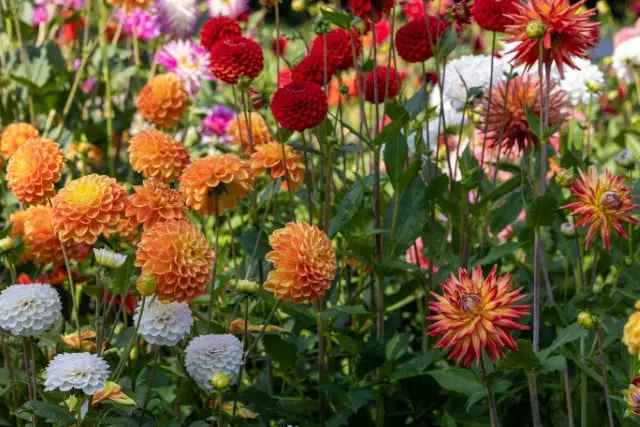
So, even if it isn’t a part of their regular diet, it’s easy to understand why a deer would start nibbling at your dahlias.
A deer’s diet changes depending on the season. They will eat more in the summer and fall to store energy for the winter months when it is harder for them to find food.
A deer’s diet also depends on its location and natural habitat.
If you live in an area with very harsh winters, deer are going to need to fatten up during the more temperate seasons.
How Do You Keep Deer from Eating Dahlias?
There are several ways to keep deer from eating your dahlias. One of the most obvious things to do is put up a deer fence, but that could be impractical depending on the size of your property.
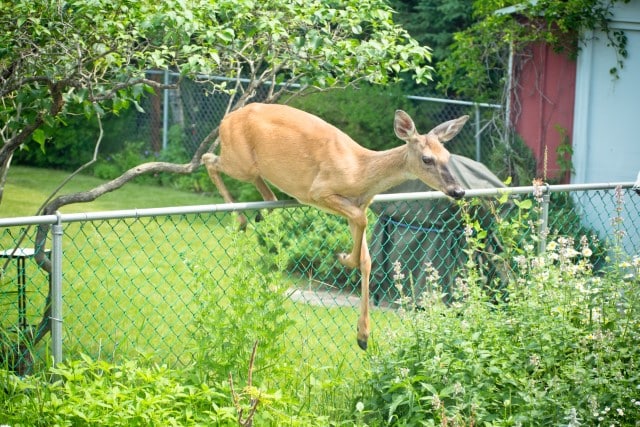
Since deer are very good jumpers, the fence would also need to be a minimum of eight feet high.
Deer repellent tends to be pretty effective in keeping away deer, but make sure it’s organic. If it’s not, it could damage your garden.
If you have any pets, there’s also a chance that exposure to deer repellent could be unhealthy for them.
This depends on its ingredients. Check the label for instructions and suggested precautions.
If you don’t want to use any chemicals, there are sonic repellers that you attach to your house. They emit an ultrasonic sound that will frighten away the deer.
The frequency is too high for humans to hear, so it won’t bother you.
Some gardeners claim that certain herbs ward off deer. Sage is a popular example.
For some reason, deer do not like the scent and won’t come near it. So, planting sage and other deer resistant perennials next to your dahlias could be a good way to ward off deer (and give you something yummy to eat).
What to Feed Deer?
You shouldn’t feed wild deer in your yard. While it may seem like you’re helping, giving deer food will disrupt their eating patterns, digestive system, and this can harm not only the deer, but it may upset the balance of your local ecosystem.
Maybe you think that feeding the deer will stop them from eating your dahlias. This isn’t true.
In fact, if you put out food for wild deer to eat, you’ll only attract them to your property. And that’s not what you want.
Other Than Deer, What Eats Dahlia Flowers?
If your dahlias are disappearing and you have deer around, it’s natural to assume that these animals are the culprits. But that’s not always true.
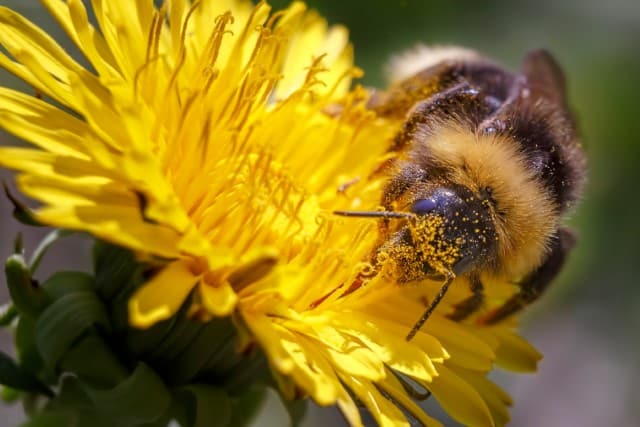
Dahlias aren’t a deer’s favorite food, and if you have any fruit or more leafy plants in your garden, it’s much more likely that the deer is going to go after those foods first.
So, it could be that another animal is responsible.
It’s far more likely that insects or slugs are eating your dahlias.
Slugs are one of the most problematic pests, and they will go after more than your dahlias. You’ll probably need a commercial slug repellent to get rid of them.
Beetles are one of the other most common culprits, and they can be removed manually. However, like slugs, it can be hard to get rid of them.
So, if your dahlias are disappearing and beetles are responsible, you should probably look into using some sort of pesticide to protect your flowers.
If pests are going after your dahlias, they’re eventually going to start eating your other flowers and plants.
Final Thoughts: Do Deer Eat Dahlias?
Now you have a better understanding of why deer are eating your dahlias and how you can keep them away.
If these tricks don’t work, it’s probably a good idea to ask a local gardener or even hunter for some tips. They will know the most about the deer and plants in your specific area.
To sum up, deer will eat dahlias when they don’t have their preferred food sources. If deer are eating in your garden, you can use tools like deer repellent or better fencing to keep them out, but planting fragrant plants that deer don’t like around your Dahlias may be your best option.

